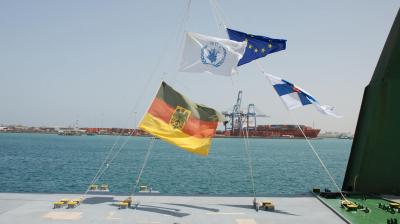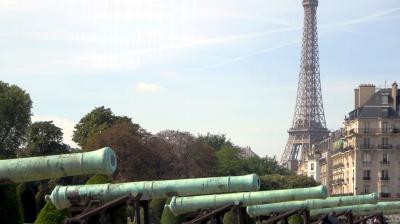
Although the media may focus on other features of Italian politics, the reality is that Italy continues to be a strong supporter of European defence cooperation and integration. This support is likely to persist in the next months and years through the uncharted waters of Permanent Structured Cooperation (PESCO) implementation.
There are many reasons for the Italian support for European defence. First, the “Europa della difesa”, as European defence is often called, is deemed necessary by the Ministry of Defence in order to be more effective in protecting national security. Secondly, the Ministry of Foreign Affairs and International Cooperation considers European defence as a long-standing goal of Italian diplomacy, fully in line with the country’s national interests. Thirdly, the domestic defence industry finds it useful to achieve larger European public investments and greater industrial synergies - despite the fact that some Italian companies want to maintain at national level few procurement programmes. Fourthly, the idea of European defence enjoys substantial support from the political establishment and in the public opinion, on both normative and realistic assumptions. For the mainstream part of the political spectrum this is still the case, despite the significant growth of euroscepticism in Italy as a result of the EU austerity policies during a prolonged period of economic stagnation, and due to the lack of proper European support as regards the extraordinary migration flows faced by the country in the last four years.
On top of these main reasons, the fact that the High Representative/Vice President Federica Mogherini is Italian has since 2013 served as an additional driver for Italy’s commitment to European defence.
It is therefore no surprise that Italy is one of the strongest supporters in Europe of PESCO, and has already prepared a number of proposals to be submitted under this umbrella, from the development of maritime capabilities, European defence training and education facilities, to initiatives in the sector of air and land forces. In this context a key point for Italian policy-makers and stakeholders is to join the Franco-German core group at the political, military and industrial level. In a post-Brexit Union, this is perceived – in strategic terms – as the only game in town. At the same time, Italy wants to adopt a realistically inclusive approach towards a truly European defence, by keeping open the core group of larger countries to other EU Member States willing and able to join it.
"The fact that the High Representative/Vice President Federica Mogherini is Italian has since 2013 served as an additional driver for Italy's commitment to European defence"
Rome’s inclusion in the cooperation between Berlin and Paris would touch upon the joint development of a number of new capabilities, from the ongoing Eurodrone project to a possible new maritime patrol aircraft, main battle tank or future combat air system. The recent acquisition of French STX-Saint Nazaire shipbuilding by the Italian company Fincantieri may play a positive role in this regard, through enhanced bilateral and multilateral cooperation in the naval sector – first on civilian ships and then, hopefully, on military ones.
One of the main obstacles to Italy’s ambition to join Franco-German cooperation can be found in the Italian defence budget, that is stagnating around 1.1 per cent of GDP, and showing an imbalance between personnel expenditure on the one hand and investments and operational costs on the other, in favour of the former. The desirable increase in both size and quality of Italian defence expenditure will depend, among other things, on the willingness of the next Parliament to continue on the reform path indicated by the White Book on Defence and International Security adopted by Italy in 2015. Also given these enduring budgetary constraints, it is Rome’s point of view that PESCO should be supported by the European Defence Fund (EDF). It is not by chance that Italian representatives have been extremely active in the design and implementation of the EDF.
As far as the Brexit negotiations are concerned, Italy is substantially aligned to the prevailing EU position, but it is simultaneously interested in keeping good relations with the United Kingdom in light of the strong bilateral links regarding the defence industry, in particular in the field of helicopters, avionics and electronics.
In this rather stable context, a political question mark is represented by the Italian general elections scheduled next Spring. According to the recently approved electoral law, two thirds of the seats in Parliament will be allocated on a proportional basis among the parties that have been able to gain above 3% of votes, with the remaining one third distributed through a first-pass-the-post voting system across more than 200 constituencies.
As such, the electoral law rightly encourages political stability and the formation of coalitions, but it will likely be insufficient to ensure a clear-cut parliamentary majority the day after the elections. The reason is that in recent years three political poles have consolidated in Italy: the progressive one, led by Partito Democratico, which has governed Italy in the last 4 years; the conservative one, with Forza Italia and Lega as its main pillars, which currently enjoys growing consensus; and the populist Movimento5Stelle. Unless one of these three poles scores an impressive result, it is likely that after the elections a gross coalition government will be formed by the mainstream parties of the progressive and conservative camps.
Such a political process will probably diminish the activism of the Italian government in the first half of 2018, but it should avoid a scenario of populist take over. As the eurosceptic movements will probably stay in the opposition, their foreseen gains in terms of votes would not revert Italy’s position in favour of European defence. At the same time, the fact that military officials, diplomats, civil servants and the defence industry in Italy are more or less on the same page as far as European defence is concerned, would likely ensure a certain continuity at the working level, for example with respect to the PESCO and EDF implementation.
In a nutshell, because of the electoral campaign and then the process to form a new government, in the coming months we will probably see Italy keeping a lower profile on European defence as compared to recent years, but it will surely remain a steady supporter of its realisation.








